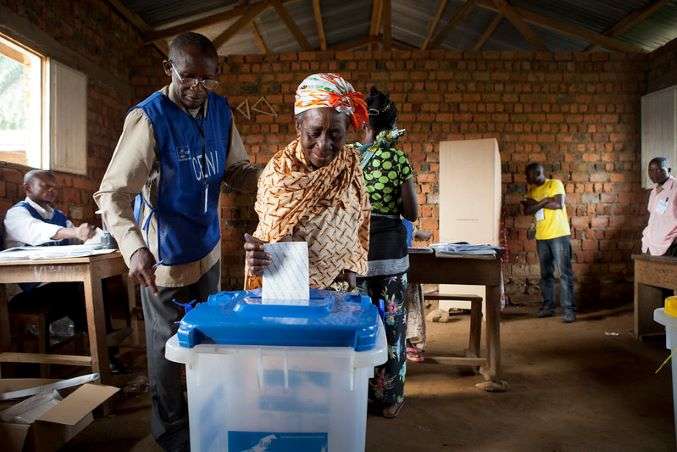By CIPESA Writer |
The Democratic Republic of Congo (DR Congo) heads to general elections on December 20, 2023 amidst considerable turbulence, including a deluge of disinformation and endemic insecurity in parts of the country. To move towards building a safer and more democratic society, the Congolese government must break away from its past practice of limiting internet access and commit to keeping the internet accessible ahead of, throughout and after the election period.
For more than a decade, network disruptions have been a hallmark of elections in the DR Congo, Africa’s fourth most populous country. The first network disruption, which affected Short Messaging Services (SMS), was witnessed in December 2011, following disputed elections. The government claimed the move was necessary to prevent the online spread of fake results prior to the official announcement by the electoral commission.
Three years later in January 2015, the Congolese government again ordered telecommunications companies to block access not only to SMS but also the internet. This shutdown came on the backdrop of protests against a proposed electoral bill. Whereas banks and government agencies were granted access to the internet four days after the shutdown, the general public did not regain access until after three weeks.
In 2016, the government ordered telecom operators to block access to social media sites as an attempt to thwart mobilising by protestors against then president Joseph Kabila’s stay in office beyond the two-term limit. In January 2018, internet access and SMS were disrupted ahead of a peaceful protest march organised by the Catholic Church to compel Kabila to step down following the expiry of his final term in office.
The Congolese government again disrupted the internet during the last general elections in December 2018. A senior government official justified the move as necessary to preserve public order after “fictitious results” were circulated on social media.
Congo faces strong challenges to electoral integrity, including logistical ones such as faulty voters’ cards, poor infrastructure that renders delivery of electoral materials cumbersome, and armed conflict that will likely limit voting in some areas. Moreover, the rampant electoral disinformation has fuelled insecurity and hindered many citizens’ ability to access credible and pluralistic information necessary to make informed and independent choices.
Opposition leaders have accused the electoral commission of lacking independence and questioned its ability to hold free and fair elections. This has fomented hostilities against the electoral body and its officials and raised the possibility of post-election violence.
Meanwhile, since November 19, 2023, the Committee to Protect Journalists has documented attacks or threats against at least four journalists and the closure of at least one broadcast station.
Today, a disruption to the internet would exacerbate the challenges of disinformation, incite violence, endanger people’s lives, affect press freedom, and have long-lasting harms on Congo’s economy. Shutdowns provide a shield to those who perpetrate human rights violations, deny people access to critical information, and amplify the spread of misinformation as they block access to alternative sources of verification. The resulting lack of transparency would fuel doubts about the integrity of the elections and heighten the prospects for violence.
Internet shutdowns also violate regional and international frameworks including the African Charter on Human and People’s Rights (ACHPR), the Declaration of Principles on Freedom of Expression and Access to Information in Africa 2019, and the International Covenant on Civil and Political Rights (ICCPR). These frameworks uphold fundamental human rights including freedom of opinion and expression, access to information, right to assembly and social, economic, cultural and political rights.
Indeed, the United Nations Special Rapporteur on the Rights to Freedom of Peaceful Assembly and of Association has noted that network shutdowns are in clear violation of international law and cannot be justified in any circumstances.
The 2023 election could be a key step in Congo’s move toward a more democratic, tolerant and safe society. How the country handles the election process, including the transparency and integrity of the entire electoral cycle, could determine whether the post-election period will be peaceful and see meaningful social cohesion in the country.

